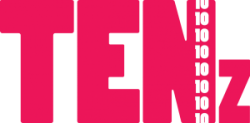With our sexual identities, behavior and health still points of controversy in many places within the U.S. and around the world, finding medical professionals who are LGBTQ friendly can be challenging enough, let alone finding a doctor who shares the experience of queerness. But at a time when new HIV infections are still a serious issue for gay men of color, there has been an uptick in syphilis cases, drug-resistant strains of gonorrhea have begun to appear, and the current administration in Washington is actively working to make it easier for physicians to deny medical assistance to queer patients based on religious beliefs, it is essential that LGBTQ folks have access to medical care where we feel safe and our lives are valued.
Dr. Marcus Tellez D.O., M.P.H. is on the front lines helping to usher in a wave of progressive new voices within the medical establishment, one selfie at a time. His Instagram account, @doctor.tellez, playfully combines sexy selfies with vital and conscientious information on topics ranging from body positivity to sexual and mental health. He also openly embraces his queerness, regularly discussing issues he’s faced regarding fem shaming, dabbling in drag, deconstructing gender identity and advocating for trans awareness. We sat down to ask him a few questions about himself, his work and his mission to queer the world of medicine.
Interview Chris Cali
When did you first know that you wanted to become a doctor and when did you first know you were queer? Which one came first?
The doctor came first. Since I can remember, my childhood aspirations included becoming a vampire, mermaid, witch, or a doctor. So, it came down through a process of elimination at a young age. I was always a very flamboyant gay from the get-go, but I honestly didn’t come to terms with my sexuality and how it would define me until my late teens.
Can you tell us about issues you’ve faced being openly queer in your medical career, either as a student or in your residency?
To be honest, I haven’t faced as many issues as I expected from my medical peers. By the time I finished undergrad, I had come to terms with my sexuality and became comfortable with who I am. I’ve received mostly positive feedback when speaking about LGBTQ issues and had very few instances where I’ve truly felt discriminated against. With patients, I’ve had a few heterosexual men seemingly uncomfortable with me; but for the most part, I think my sincerity and passion shines through. It allows my patients to feel more at ease and comfortable opening up. Just like any marginalized group, we face struggles every day and try to stay focused on the positive.

There has definitely been some historical friction between the medical establishment and LGBTQ folks. Can you talk about why it’s important to you to help heal that rift?
Absolutely. As with many aspects in this country’s history, medicine used to be predominately driven by cisgender, heterosexual, white men. Historically, medicine and healthcare have failed the LGBTQ and other minority communities. Whether you look back at the AIDS crisis in the 80’s, the Tuskeegee experiments, discrimination of transgender patients in the ER, or HIV stigma, we’ve always faced pushback. We’ve grown stronger from such experiences, but I feel responsible to improve those relationships. It’s my duty as a queer doctor to better my community. I know we’ve all faced discrimination within the healthcare field, myself included as a patient; and I want to show the LGBTQ community that healthcare professionals are here to help you.
Instagram, especially the accounts of some gay men, is sometimes viewed as vapid or narcissistic in nature. When did you decide you wanted to use your Instagram to spread awareness on medical and mental health?
You’re absolutely right, many accounts of gay men are frequently viewed as narcissistic and vapid. I’m guilty of thinking the same thing at times. But to be fair, I think there are just as many heterosexual men with fitness and workout accounts that are vapid and narcissistic. As an LGBTQ community we are definitely targeted and flagged more often for our content than heterosexuals, but I believe social media can be an important tool to spread awareness and increase our visibility in the world.
I started using my Instagram to raise awareness of LGBTQ health topics last summer, before I began residency, while I was attending my first Pride in Key West, FL. It hit me then that there are a lot of doctors using social media as a way of gaining “fame” without using their platform to raise awareness of important health topics. I figured that I could do the same thing and bring about positive change to give back to my own community.

You advocate a lot for LGBTQ folks of color. Why is it important to you to raise awareness and focus on those communities in particular?
Statistically, as people of color, and especially so within the LGBTQ community, we face higher rates of mortality, STIs, mental health issues, and drug use. These issues often stem from discrimination, racism, transphobia and homophobia in society. This results from a lack of knowledge and awareness on the part of patients. I regularly highlight these topics so that we can eventually receive the same treatment and care given to cisgender, heterosexual patients. We have the highest rates of HIV/AIDS and mental health issues, not because there is anything inherently wrong with us; but because we don’t receive the same access to proper health care. I’m fighting to change that.
You also advocate for more progressive views on gender, issues of fem shaming, and trans awareness. Do you think the medical establishment is becoming more understanding of these issues?
That depends on who you ask, what city you’re in, etc. I’ve been told to tone down my femininity and act “more straight” by colleagues who were ‘concerned’ with my future success. I’ve been told no patient will want a feminine “faggot” as a doctor by other gay men. Despite this, I’ve seen the medical field become more open and understanding. Recently, I’ve delivered a lecture on LGBT+ Health at a statewide conference, collaborated with a local pharmacy to provide free PrEP for patients, and I’ve also started a project on HIV PEP (post-exposure prophylaxis) education for residents. I definitely feel like the medical field is headed in the right direction regarding LGBTQ health, and I want to help keep that positive momentum going.
Where would you like to see your career in medicine take you?
I want to be on the frontlines of medicine; promoting LGBTQ health equality and bringing awareness of these topics to a global audience. I want medical professionals to realize that while we are a collective queer community, each group has its own increased risks and health disparities that need to be addressed on an individual basis. I intend to relocate to a region with a higher population of LGBTQ patients in order to establish future medical recommendations and guidelines for my community.
Any projects or initiatives on the horizon you’d like us to look out for?
Currently, I’m working on my HIV PEP project and am looking for more opportunities to give lectures on LGBTQ health and HIV prevention. I plan to volunteer at a clinic for LGBTQ youth, get my HIV medicine certification, and gather as many resources as I can for transgender health. I might do some extra training in Botox and aesthetic medicine for fun too.
What words or advice would you offer to LGBTQ folks who are considering a career in medicine?
Don’t do it for the money! There are easier, more lucrative careers out there haha. But if you truly love medicine and the art of helping people, we need more visibility within all aspects of healthcare. Whether you choose to be a nurse, PA, dentist, social worker, or therapist, you can make a difference in our community for the better.
Thank you TENz for this opportunity to share a bit of myself and my experiences as an openly queer doctor.






